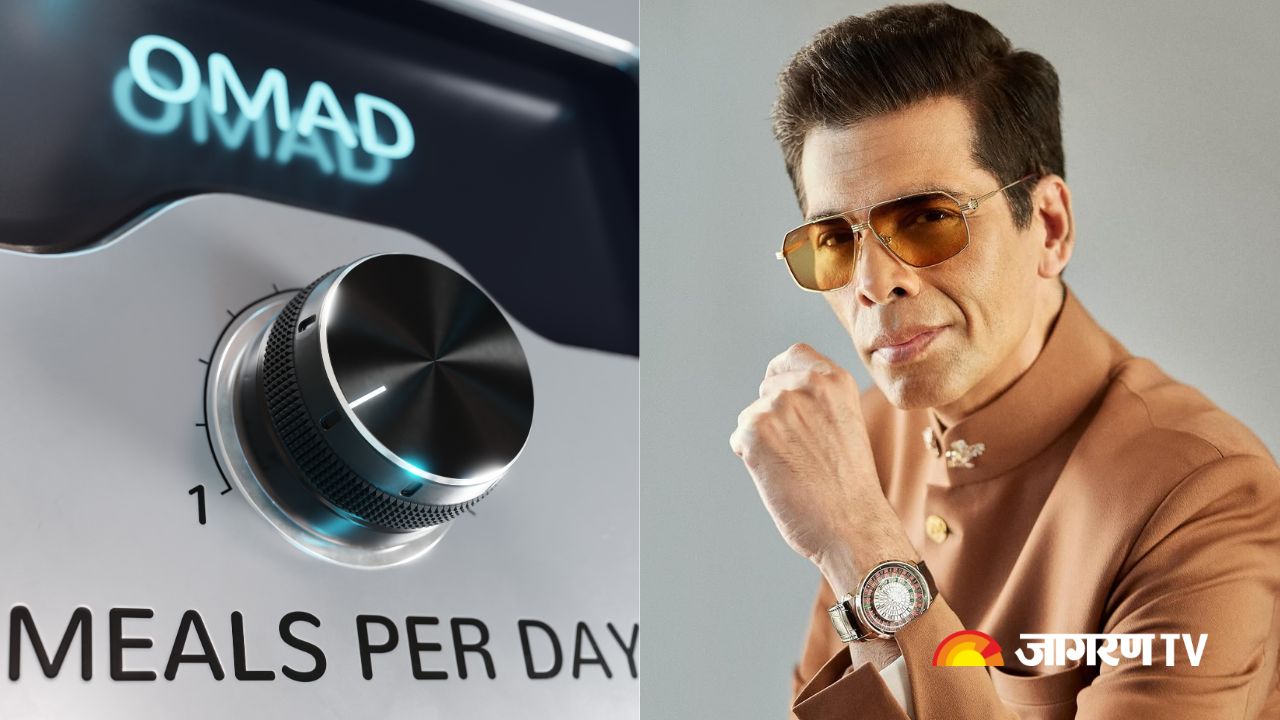Karan Johar Credits His Weight Loss To OMAD: Know Its Benefits, Health Risks, And If It Is Suitable For You?

Karan Johar Weight Loss: Filmmaker Karan Johar has been making several headlines for his drastic weight loss journey. His transformation has evoked shock and awe among his fans and Bollywood friends alike.
Many made speculations about the producer being on weight-loss drugs like Ozempic or Mounjaro, but he has denied all such claims. But recently, he decided to give a clear answer to put all claims on hold.
In a recent interview with Raj Shamani, the Bollywood producer candidly opened up about following OMAD- One Meal A Day in his weight loss transformation.
Denying the doubts about using certain drugs to get his snatched jawline and slim torso, he said that people ask him, “Are you on Mounjaro? Are you on Ozempic?’ I’m tired of these comments. People don’t know my truth.”
He further elaborated, “I went on something called OMAD, which stands for One Meal a Day.”
View this post on Instagram
So, what is OMAD, and can you also use it as an aid in your weight loss journey? What are the benefits and possible health risks of being on OMAD? We detail it all for you in this article.
What is OMAD?
As the name suggests, OMAD–One Meal A Day is a type of intermittent fasting where people refrain from eating for an entire day, only to eat one heavy meal a day using the PM. The aim is to reduce the calorie intake of the day and shift it into a certain time where you can eat anything you want.
OMAD works on the concept of creating a calorie deficit where the body is triggered to shed weight by using energy from the stored calories in the body to perform other bodily functions.
The rest of the time in a day is spent fasting on a carb-free and non-caloric beverage diet, which usually includes water and black coffee.
Johar has revealed in the same interview that he did OMAD for seven months, where he would have one day at around 8 or 8:30 PM.
Benefits of OMAD
Like several other types of fasting, OMAD also works by restricting calories, ensuring that the body loses weight by creating an energy deficit. Its major benefits include weight loss, reduced blood sugar levels, improved digestion,n and better insulin sensitivity.
Moreover, OMAD can reduce inflammation in the body, support a healthy nervous system, and promote longevity.
Health Risks
OMAD may look like a charming way of weight loss, but there is an ugly side to it as well. Its potential health risks include:
Lack of sustainability: OMAD is not a sustainable weight loss option. It is not a suitable ling term diet plant. As the filmmaker himself revealed that he is now focusing on gaining some weight. He said, “For the last one and a half months, I’ve felt that I need to put on some weight, so I’ve brought in lactose and a little bit of carbohydrates in the form of rice, but I still don’t consume gluten.”
Hormonal Imbalances: OMAD can create imbalances in hormones, especially in women, as prolonged fasting can lead to disruption in the menstrual cycles, slow down metabolism, or trigger thyroid hormones.
Nutritional Deficiency: OMAD can lead to nutritional deficiencies in the body as one meal a day cannot fulfill the body’s demand to have all the nutrients, especially heavy nutrients like protein, which are difficult to consume in one meal.
Overall, OMAD is a quick way to lose weight, but it may not be suitable for people with prior medical conditions or women with hormonal issues. It can trigger further health complications; therefore, a medical expert must be consulted before opting for such a drastic shift in lifestyle.






